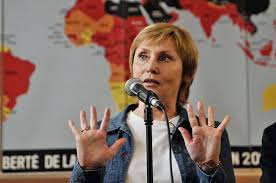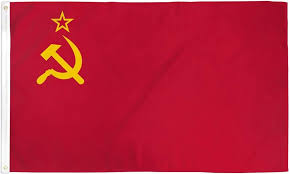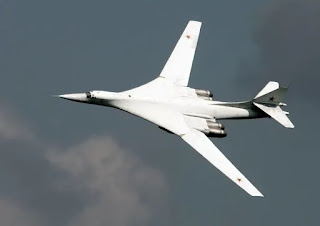In Barbarossa Unleashed, Craig Luther makes an unsettling argument: the German invasion of the Soviet Union in 1941 was doomed not because of heroic Soviet resistance or Allied assistance, but because the German army was structurally and logistically incapable of winning the war it began. Page after page, Luther piles on data—numbers of tanks, calibers of guns, fuel consumption rates, rail gauges, truck shortages, ammunition stocks, winter clothing shortfalls—until a grim picture emerges. The Wehrmacht did not merely underestimate the Soviet Union; it lacked the material capacity to defeat it. Germany invaded too far, too fast, with too little.
Luther is relentless. Rather than focusing on battlefield drama or individual commanders, he dissects the war as an industrial and logistical contest. The best German tanks often outperformed Soviet models tactically, but they broke down at catastrophic rates. The bulk of the 3,500 German tanks in the invasion force were no match for the Soviet T-34 entering the fight at a rate of hundreds per month.
German supply lines stretched hundreds of miles over incompatible rail systems. Fuel shortages crippled mechanized units long before Soviet resistance did. Winter arrived not as an act of fate but as an entirely foreseeable consequence of German planning failures. The German army, Luther shows, was optimized for short campaigns against weaker opponents—not for a continental war against a state with vast manpower reserves and a deep industrial base.
From this analysis flows Luther’s most provocative conclusion: Germany could not have defeated the Soviet Union, even without Western aid. By December 1941, the campaign had already failed. Moscow had not fallen. Soviet industry had been relocated east of the Urals. German losses in men and matériel were irreplaceable. Whatever the later heroism of Soviet soldiers, the structural imbalance was decisive. Nazi defeat on the Eastern Front was not merely possible—it was inevitable.
That conclusion carries a deeply troubling implication. If Germany was doomed in the East regardless, then the wartime alliance between the Western democracies and the Soviet Union appears not only morally compromised, but strategically unnecessary. The United States and Britain allied themselves with a regime whose ideology, methods, and ambitions were fundamentally hostile to democratic values. Stalin’s Soviet Union was not a temporary partner of convenience that later “went bad.” It was a totalitarian empire before, during, and after the war.
Worse still, the price of that alliance was paid not by Americans or Britons, but by the peoples of Eastern Europe. Poland, the Baltic states, Romania, Bulgaria, Hungary, and much of the Balkans were first crushed by Nazi occupation and then absorbed into Soviet domination. Allied concessions—formalized at Tehran, Yalta, and Potsdam—did not merely recognize military realities; they legitimized the enslavement of entire nations. The Western powers did not simply accept Soviet control; they helped sanctify it.
Defenders of the alliance argue that without Lend-Lease aid and strategic cooperation, the Soviet Union might have collapsed, prolonging the war or allowing Germany to consolidate its gains. Luther’s work challenges that assumption. Germany’s strategy depended on a lightning victory comparable to Poland or France. When that failed in 1941, the German war effort entered a slow-motion collapse. Even without American trucks or British matériel, the structural imbalance remained. The Wehrmacht could not replace its losses. The Red Army could—and did.
If this is true, then the moral calculus of the war changes uncomfortably. The Western Allies may have won the war faster by aiding Stalin—but at the cost of enabling a second empire to impose its will on Europe. The defeat of Nazi Germany was necessary and just. The method by which it was achieved is far harder to defend. One tyranny was destroyed; another was empowered.
This is not an argument for sympathy with Germany, nor a denial of Soviet suffering. It is an argument about choices. History often frames the wartime alliance as unavoidable. Barbarossa Unleashed suggests otherwise. The United States and Britain may have mistaken expediency for necessity, confusing the urgency of victory with the wisdom of alliance. In doing so, they secured peace in the West while abandoning the East.
Luther does not write polemic. He writes accounting—of fuel, steel, men, and vast distances. Yet the moral indictment emerges naturally from the numbers. By showing that Nazi defeat in the East was already baked in by the winter of 1941, Luther forces readers to confront an unsettling possibility: the Cold War may have begun not as an accident of victory, but as the predictable consequence of choices made when victory was already assured.
History rarely offers clean alternatives. But it does demand honesty. Barbarossa Unleashed strips away comforting myths and leaves behind a harder truth: the Allied victory over Nazi Germany came bundled with a second, avoidable tragedy—one whose victims had no seat at the negotiating table and no voice in the alliance that sealed their fate.
Without Allied aid, the Soviet Union would, according to Luther, have defeated the Nazis. But it is very possible they would have stopped at the Russian frontier and sued for a separate peace, much as Russian empire had done in 1917. How different would the world have been with Poland, the Baltic states, and the Balkan states free from the time World War II ended.
My heart aches as I read Barbarossa Unleashed wondering if Ukraine could have extracted itself from a weakened Soviet Union and be celebrating decades of democratic peace instead of fighting off Russian invaders.































